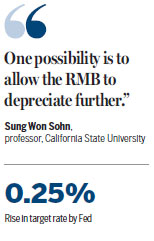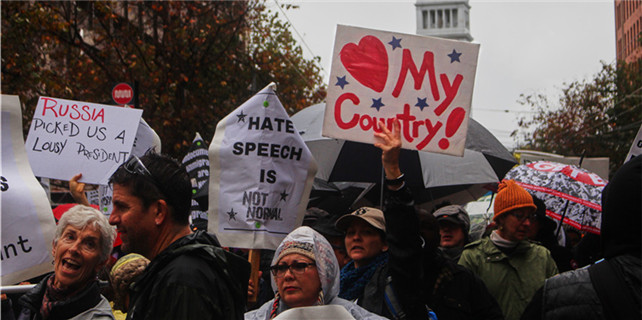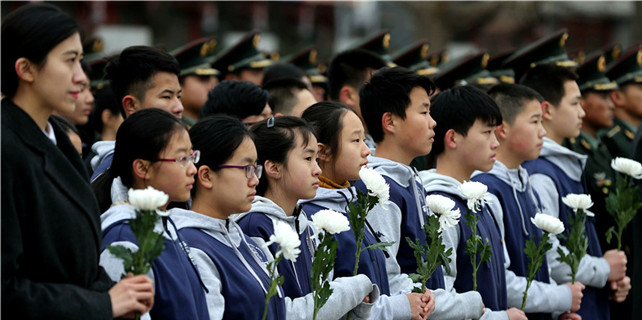Fed hike may affect China's capital outflows
The US Federal Reserve's move to raise borrowing costs in the US may affect capital outflows from China and the value of the yuan against the dollar, according to experts.
On Wednesday, the US central bank increased the federal funds target rate from a current range of 0.25 percent to 0.50 percent to 0.50 percent to 0.75 percent.
The Fed had pushed short-term interest rates down to near zero in 2008 as the financial crisis unfolded. It moved rates up a quarter percentage point a year ago.
"The hike and expected future increases in the interest rate could worsen the capital outflow. Most likely, the Chinese authorities could put in more restrictions of capital outflows," Sung Won Sohn, professor of economics at California State University Channel Islands in Camarillo, California, said in an email.
China experienced rising capital outflows a year ago when the Fed raised rates. Goldman Sachs estimated that net capital outflows from China in the first quarter of 2016 were around $123 billion, as investors and others in China searched for higher yields.
"The best response to capital outflow from China is more domestic economic reform to create better opportunities at home," wrote David Dollar of the John L. Thornton China Center at the Brookings Institution in Washington, in an email.

Sohn also said that the People's Bank of China (PBOC) may have a more difficult time keeping the exchange rate stable.
"One possibility is to allow the RMB to depreciate further or widen the band from 4 percentage points to something wider. Additional government regulations from SAFE (State Administration of Foreign Exchange) are another possibility," Sohn added.
The "PBOC has been keeping the trade-weighted exchange rate stable since July, and I expect them to continue that policy," Dollar said.
Chen Zhao of asset manager Brandywine Global said the key challenge for China is the US dollar.
"If the dollar appreciates on a stronger US economy, activist fiscal policy and tighter Fed policy, then the Chinese yuan will be under downward pressure," he said.
"Should most Asian currencies drop versus the dollar while the yuan is 'kept more or less steady,' it would serve as a de facto monetary tightening for China. Not good news."
Julia Wang, China economist for HSBC in Hong Kong, doesn't expect any further rate cuts or a reduction in the RRR (reserve requirement ratio for banks) from the PBOC in 2017.
"The Chinese economy is showing signs of stabilization as the industrial sector moved away from deflation to modest inflation, and private investment stabilized," Wang said.
"Better domestic growth outlook is ultimately the most helpful factor to anchor expectations on currencies and capital outflow."
In forecasts released after its meeting, the Fed also indicated it might raise the federal funds target rate three times next year instead of the two quarter-point increases previously forecast.
The stock market has been rallying since the election of Donald Trump as president in November, and some believe that the Fed will have to be more aggressive next year due to Trump's promise of tax cuts and infrastructure spending.
Brandywine's Zhao believes future "Fed rate hikes will be calibrated according to fiscal policy, and the more expansionary fiscal policy is, the tighter the Fed policy will become.
paulwelitzkin@chinadailyusa.com
(China Daily USA 12/15/2016 page2)









